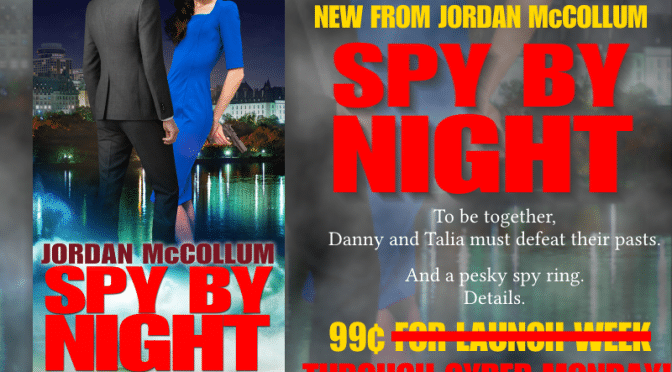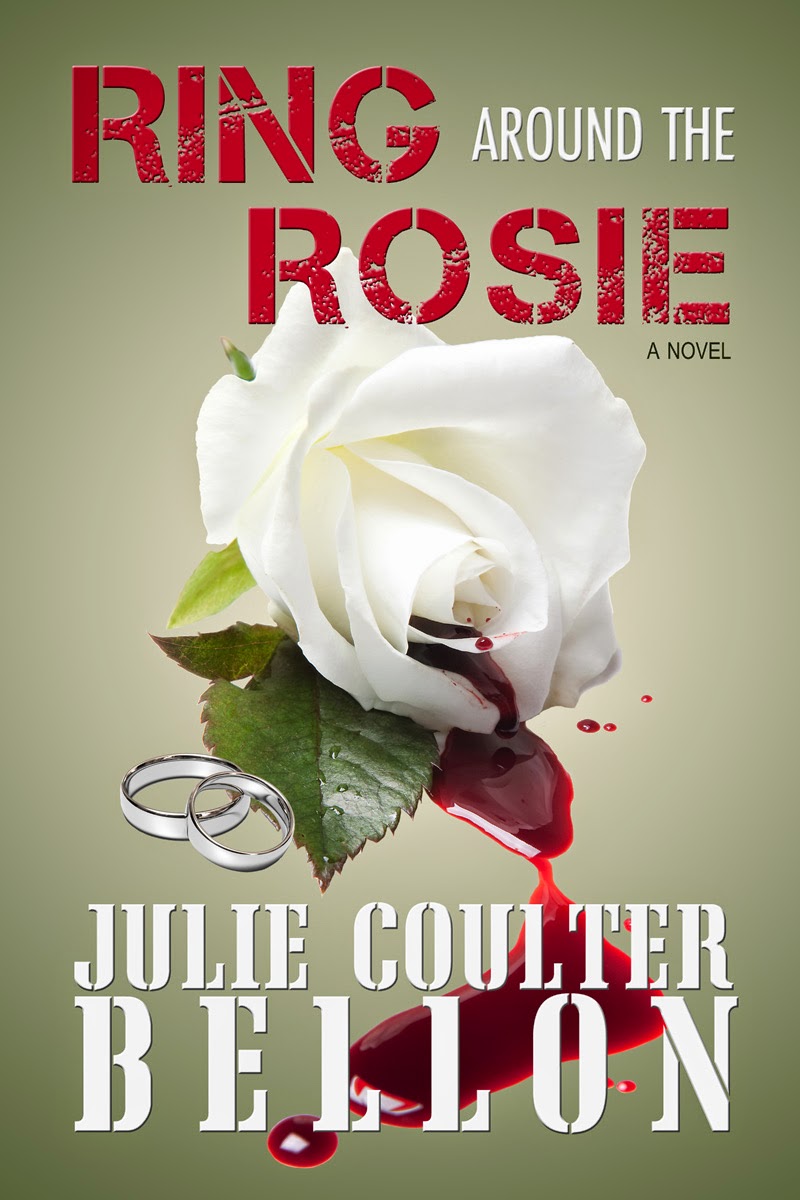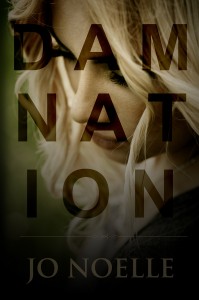The latest book from my critique partner Julie Coulter Bellon has launched—and it’s the thrilling conclusion to her hostage negotiator series! It’s a fantastic capstone to their stories, and a sweet reunion romance. Check it out!
Ring Around the Rosie Blog Tour and Giveaway!
Today is the kickoff for the blog tour for my new novel, Ring Around the Rosie! There are some awesome prizes being given away, so be sure to scroll down and enter to win!
Ring Around the Rosie
Revenge is a dish best served cold . . .
As the ex-wife of a law enforcement officer, Sarah Reed has known loneliness and loss. In order to cope, she makes a life for herself that’s full of routine while building a wall of ice around her heart. Everything about her is as predictable as she can make it until a tiny detour for her ex-husband, Ron, changes her life forever. Caught in a bomb crisis, Sarah is taken hostage by a man who wants Ron and everyone around him to suffer—and his idea of suffering is more terrible than Sarah had ever dreamed.
Captain Ron Reed has seen the worst of humanity in his job with the Hostage Negotiation Team, but he never expected his past to come back with a vengeance—literally. Aaron Starks, a criminal explosives expert, has stolen next-gen bomb technology and uses it to force Ron to bargain for the lives of his team and his ex-wife, Sarah, the woman he still loves. But the situation escalates when Ron discovers that Starks has an even bigger objective in mind—using the bomb to show how vulnerable America and her people truly are.
Ron is willing to risk everything to save his country and those he loves, but when negotiations break down, will his sacrifice be too little too late?
Excerpt
Her words were cut off by a blast of hot air and fire, an explosion so large it blew them all backward. Ron hit the floor hard and lay there dazed and groggy. Glass and debris rained down. Confetti-sized menus and napkins floated like snowflakes in slow motion all around him. For a second the entire world was a silent tunnel with him at the end of it. It would be so easy to just close his eyes and let the blackness suck him down into unconsciousness. But he couldn’t. Not yet. Get up. Get everyone out.
“Sarah?” he croaked. He tried again. “Sarah?” His legs felt like lead and the urge to just lie back was stronger than ever. No. Keep moving. “Claire?” He coughed and tried to catch a breath, but couldn’t get the oxygen to his lungs. With a shallow intake of air, he turned over on his stomach and used his arms to raise himself to a sitting position. The inside of the diner looked like a destructive madman had rearranged it. The booths were toppled or stacked on top of each other. The hostess station was next to him now. The only thing that was still standing where it had before the blast was the four walls, the ceiling, and the antique counter. “Sarah,” he called again. “Bart? Colby?” The little girl. Was she still in the back with her mother?
No one answered. Where is everyone? He crawled forward. Sarah had been nearly right beside him. Now there was no sign of her. He rubbed his eyes and coughed. Moving slowly, he prayed she was alive. It didn’t take long to find her sandwiched between an overturned booth bench and the podium for the hostess station. With some effort he managed to maneuver close to her, the adrenaline kicking in as his blood pounded through his system. Don’t let her be dead. Not like this.
Purchase Your Copy
Praise for Ring Around the Rosie
“Julie Coulter Bellon proves once again she is a master at capturing her audience from the very first page . . . Unlike most suspense novels, the most suspenseful portion of Ring Around the Rosie is the first two thirds of the book . . . Suspense readers as well as anyone who just enjoys an absorbing story will enjoy this one.” —Jennie Hansen, Meridian Magazine
Julie Coulter Bellon is one of my favorite romantic suspense writers, and this book is her best so far! It charters deep emotions and a complex plot. At the same time it traces the resurrection of a marriage. It has good writing, good plotting, and a very satisfying ending. —Award-winning romance author, G.G. Vandagriff
About the Author
Julie is married with eight children and eleven published books. She loves to travel and her favorite cities she’s visited so far are probably Athens, Paris, Ottawa, and London. She would love to visit Hawaii, Australia, Ireland, and Scotland someday. She loves to read, write, teach, watch Castle and Hawaii Five-O, and eat Canadian chocolate. Not necessarily in that order.
Giveaway
Prize #1—$30 Amazon Gift Card
Prize #2—Booklovers Basket
Prize #3—Four Book Set of Hostage Negotiation Team series
Ends 9/15/14
Open only to those who can legally enter, receive and use an Amazon.com Gift Code or Paypal Cash. Winning Entry will be verified prior to prize being awarded. No purchase necessary. You must be 18 or older to enter or have your parent enter for you. The winner will be chosen by Rafflecopter and announced here as well as emailed and will have 48 hours to respond or a new winner will be chosen. This giveaway is in no way associated with Facebook, Twitter, Rafflecopter or any other entity unless otherwise specified. The number of eligible entries received determines the odds of winning. VOID WHERE PROHIBITED BY LAW.
 Last year, I was floored to find out both I, Spy and Spy for a Spy were finalists for a Whitney Award. To be considered, a book must be nominated by five people. Then it goes before a committee of five (I think?) judges who read all the nominees in that category (authors select the category for their books). The judges select their top choices and the five top books become finalists. The winner is announced at a gala following the LDStorymakers conference in April/May.
Last year, I was floored to find out both I, Spy and Spy for a Spy were finalists for a Whitney Award. To be considered, a book must be nominated by five people. Then it goes before a committee of five (I think?) judges who read all the nominees in that category (authors select the category for their books). The judges select their top choices and the five top books become finalists. The winner is announced at a gala following the LDStorymakers conference in April/May.








.jpg)


 Jo Noelle grew up in Colorado and Utah but also spent time in Idaho and California. She has two adult children and three small kids.
Jo Noelle grew up in Colorado and Utah but also spent time in Idaho and California. She has two adult children and three small kids. A true Regency novel (the formal Regency period only lasted nine years until the Prince Regent ascended to the throne), Pride and Prejudice focuses heavily upon society and the social interactions of a wide circle of people. It’s written in omniscient POV, enabling the narrator to convey more information about all of the characters than any one of them would be privy to in the course of a story. Of course, with such a broad focus, it takes a while to really establish Elizabeth Bennet as the main protagonist of the story.
A true Regency novel (the formal Regency period only lasted nine years until the Prince Regent ascended to the throne), Pride and Prejudice focuses heavily upon society and the social interactions of a wide circle of people. It’s written in omniscient POV, enabling the narrator to convey more information about all of the characters than any one of them would be privy to in the course of a story. Of course, with such a broad focus, it takes a while to really establish Elizabeth Bennet as the main protagonist of the story. In my model of character sympathy, to generate full reader identification, a character needs to have struggles, strengths and sacrifice. Elizabeth shows this last characteristic when her older sister takes ill while going for a short visit to the Bingleys and must stay there to convalesce. When word reaches them the next day, Elizabeth is concerned enough for her sister to walk the three miles to the Bingleys’ and stay there to care for her. The walk, she insists, is nothing, but the exertion puts her into a bit of disarray, especially to be seen by society people (who are already pretty conceited about how much better they are than all these country folk). But her sister’s welfare is more important to Elizabeth than anyone’s opinion.
In my model of character sympathy, to generate full reader identification, a character needs to have struggles, strengths and sacrifice. Elizabeth shows this last characteristic when her older sister takes ill while going for a short visit to the Bingleys and must stay there to convalesce. When word reaches them the next day, Elizabeth is concerned enough for her sister to walk the three miles to the Bingleys’ and stay there to care for her. The walk, she insists, is nothing, but the exertion puts her into a bit of disarray, especially to be seen by society people (who are already pretty conceited about how much better they are than all these country folk). But her sister’s welfare is more important to Elizabeth than anyone’s opinion.